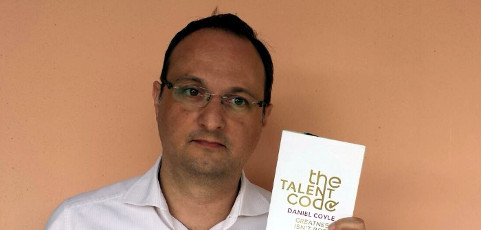I am reading The Talent Code right now, an interesting book by Daniel Coyle on… well on talent of course! What is the main idea of the book? That talent is something we are not born with (or without) and it can be grown. The scientific point is that it is based on a substance called myelin which our brain develops with deep practice. What is deep practice? Focused exercise where we struggle, make mistakes, learn from them and push our boundaries a little. Until we get it right, and in the process we develop myelin insulation on our nerves, and that is the key to develop the ability of consistently do something well, like playing an instrument, score a basket, or play chess.
That’s the basic point in a super boiled down version, if you would like to know more read the book, I am quite sure you’ll enjoy it.
Is it something it can be applied to public speaking?
The proper answer is no. But yes.
The proper answer is no, because public speaking is not a talent like serving a tennis ball or hitting a powerful soulful note. There is no constant, repetitive movement or process, to apply. Sure a powerful voice is good, but when you stand in front of an audience you are not an opera singer.
But yes, because I believe deep practice and stretching gently the confidence zone are very useful nevertheless. Public speaking is a lot about confidence, amongst other features, and it comes from mileage. The more you deliver presentations, the more you gain experience and get on top of the natural tension that comes facing an audience. You can see any public speaking opportunity as a practice for the next ones to come. So you should grab more chances to speak before a public to improve yourself. I speak from my own experience. In the beginning you focus a lot on what you are saying, over time you start focusing more on how you deliver it, and eventually on talking with your audience, which is fundamental to be a successful presenter.
How can you stretch yourself, to find some challenge? Go for broader audiences, new venues, different contests or venture into other subjects. Just remember don’t talk about stuff you don’t know or don’t care about, that won’t do.
It’s a little bit like muscle training. Every time you lift a slightly bigger weight, or try to run longer, your body tries to adapt to it and get ready for the next time. It can be the same with your communication skills: dare a little bit more and practice regularly. Your talent for public speaking will surely benefit from it!


Recent Comments